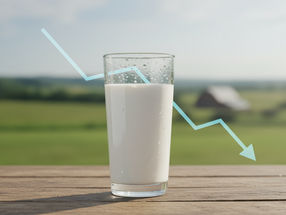Why coffee is so healthy - but not after 4 p.m.
Advertisement
For many people, coffee is the first and most important drink of the day. In the past, however, there have been repeated warnings against drinking too much coffee: for a long time, the medical community said that heart patients in particular should be careful. But is coffee really poison for the heart? And what about the other effects of coffee on body, mind and soul? The health magazine "Apotheken Umschau" has asked.

Foto von Anastasia Nelen auf Unsplash
Antioxidants protect against environmental influences
Scientists are now certain that people who drink coffee every day for decades have a lower risk of a whole range of diseases, including type 2 diabetes, depression and dementia. Even the widespread image of coffee as a cardiovascular killer has long been "cold coffee." Overall, three to four cups are considered safe for healthy people in any case.
Professor Chahan Yeretzian, head of the Coffee Excellence Center at the Zurich University of Applied Sciences, attributes the health-promoting effect primarily to two substances: caffeine and antioxidants. These are chemical compounds that protect against harmful environmental influences, such as so-called free radicals. These aggressive oxygen molecules attack our cells and thus increase the risk of cancer and cardiovascular diseases, for example.
People who drink coffee late have less deep sleep
Whether dissolved, filtered or pressed: The best-known effect of coffee is as a wakefulness stimulant. However, sleep researchers advise not to drink coffee after 4 pm. An espresso in the evening disturbs your rest even when you think you're slumbering like a log. That's because people who drink coffee late in the day have less deep sleep. You should therefore avoid coffee at least six hours before going to bed. Otherwise, you won't be as well-rested in the morning - and you'll need the next cup of coffee to get going.
Note: This article has been translated using a computer system without human intervention. LUMITOS offers these automatic translations to present a wider range of current news. Since this article has been translated with automatic translation, it is possible that it contains errors in vocabulary, syntax or grammar. The original article in German can be found here.
Most read news
Organizations
Other news from the department business & finance

Get the food & beverage industry in your inbox
By submitting this form you agree that LUMITOS AG will send you the newsletter(s) selected above by email. Your data will not be passed on to third parties. Your data will be stored and processed in accordance with our data protection regulations. LUMITOS may contact you by email for the purpose of advertising or market and opinion surveys. You can revoke your consent at any time without giving reasons to LUMITOS AG, Ernst-Augustin-Str. 2, 12489 Berlin, Germany or by e-mail at revoke@lumitos.com with effect for the future. In addition, each email contains a link to unsubscribe from the corresponding newsletter.

































































